Opening Session
Day 1 - November 26
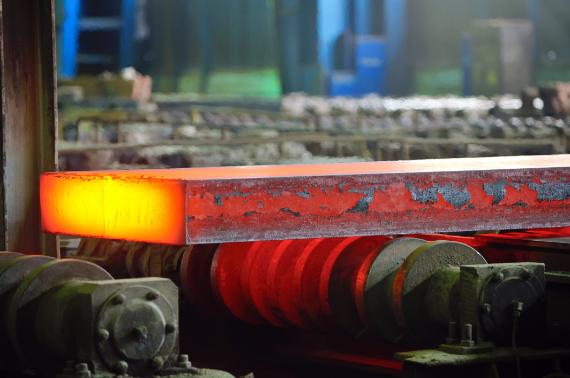
14:00 - 15:45 Room CC 9
Efforts to shift to a low-carbon economy and meet the Sustainable Development Goals will require far-reaching transformations of the heavy and extractive industries. Ending poverty (SDG 1), ensuring quality education (SDG 4) or providing access to clean water for all (SDG 6) will require large investments in infrastructure, driving the growth of several heavy industries such as steel and cement making. At the same time, limiting global temperature increase (SDG 13) will require emission reduction in these carbon-intensive sectors. Providing clean energy for all (SDG 7, SDG 9 and 13) could lead to a progressive reduction of fossil fuels consumption and drive the demand of minerals that underpin several low-carbon technologies, such as lithium for batteries or rare earths for renewable power generation. Reducing waste (SDG 12) will call for higher rates of materials recycling and re-utilisation.
Welcome Remarks
- Angel Gurría, Secretary-General, OECD
Scene-setting presentation
- Adair Turner, Chairman of the Energy Transitions Commission; Senior Fellow, INET
Keynote address
- Keeyong Chung, Director-General, Climate Change, Energy, Environment, Ministry of Foreign Affairs, Republic of Korea
High Level Business-Government Panel Discussion
Moderator:
- Masamichi Kono, Deputy-Secretary General, OECD
OECD Materials Outlook to 2060:
- Rodolfo Lacy, Environment Director, OECD
Panellists:
- Keeyong Chung, Director-General, Climate Change, Energy, Environment, Ministry of Foreign Affairs, Republic of Korea
- Adair Turner, Chairman of the Energy Transitions Commission; Senior Fellow, INET
- Jérôme Schmitt, Chairman of the Oil and Gas Climate Initiative Executive Committee, Senior Vice President Innovation & Energy Efficiency, Total SA.
- Jenny Svärd, Director Environmental Policies, Confederation of Swedish Enterprise
Session 1 - Fiscal implications of the low-carbon transition
Day 1 - November 26

16:15 - 18:00 Room CC 9
If global greenhouse gas emissions are to decrease in order to meet the Paris objectives, the consumption of fossil fuels would need to gradually decrease as economies become more electrified and renewables are deployed on a larger scale. The progressive reduction in fossil fuels consumption presents challenges to both resource-rich countries and net importers: the former often rely on these sectors for fiscal revenues and face the challenge of economic diversification; the latter will face shifting tax bases as, for instance, low-carbon electricity progressively replaces fossil fuel energy in the transport sector. At the same time, governments also spend considerable amounts to subsidise fossil fuel production and consumption. Estimates range between USD 373 billion and USD 617 billion over the period 2010-2015 for the 76 economies contributing 94% of global CO2 emissions while foregone revenues due to under-pricing of carbon emissions is estimated to amount to almost 0.8% of GDP across all OECD and G20. This session discussed the role that well-designed environmental fiscal reforms could play in managing the fiscal implications of the progressive decarbonisation of the economy. The debate also focused on the tools available to natural resource-rich countries to effectively manage revenues from their extractive sectors, such as sovereign wealth funds, while pursuing economic diversification.
Moderator
- Grace Perez-Navarro, Vice Director, Centre for Tax Policy and Administration, OECD
Scene-setters
- Dastan Umirbayev, Director, Department of Macroeconomic Analysis and Forecasting, Ministry of National Economy, Republic of Kazakhstan
- Rick van der Ploeg, Professor of Economics and Research Director, Oxford Centre for the Analysis of Resource-Rich Economies.
Panellists
- Isabel Blanco, Lead Economist, Economics and Policy Group, European Bank for Reconstruction and Development (EBRD)
- Øystein Bieltvedt Skeie, Economist (Chief specialist), Norwegian Ministry of Finance; Delegate, Joint Meetings of Experts on Tax & Environment (JMTEE)
- Bady Baldé, Regional Director for Africa, Extractive Industries Transparency Initiative (EITI)
Questions for discussion
- How would the progressive electrification of energy consumption affect tax systems? Is carbon capture, storage and utilization (CCUS) a requirement for decarbonising these sectors?
- How can governments support green innovations? What is the role of private, public R&D and co-opetition?
- What barriers can prevent technology transfer or a wide international deployment of a given technology? What policies can help to address them?
- What are the key barriers to accelerate the sustainable transition of the heavy industries? Is carbon capture, storage and utilization (CCUS) a requirement for decarboninsing these sectors?
Session 2 - Driving innovation for greening heavy industries
Day 2 - November 27

09:30 - 11:00 Room CC 9
The world’s consumption of several minerals is expected to increase considerably as the global economy expands and living standards rise, further increasing the pressure on the environment. At the same time, a sustainable exploitation of natural resources is required to meet numerous SDGs, such as ensuring availability and sustainable management of water and sanitation for all (SDG 6), promoting decent work and economic growth (SDG 8), investments in infrastructure (SDG 9), climate action SGD 13, and life on land (SDG 15). In this context, this session will discuss the opportunities and the challenges generated by the green low-carbon transition for the extractive industry. The debate explored how green technologies and business practises, including renewable energies, digitalisation (e.g. unmanned vehicles and satellites) and responsible business conduct, may help to green the extractive industries. Furthermore, the session discussed the tools available to governments and to Development Finance Institutions to address existing barriers to the shift towards greener technologies, including financing and skills gaps. The session also considered opportunities for the integration of resource-rich economies into green value chains.
Moderator
- Lieven Top, Senior Advisor, Flemish Ministry of Economy, Science and Innovation, Belgium
Scene-setter
- Mechthild Wörsdörfer, Director, Sustainability, Technology and Outlooks Division, IEA
Panellists
- William Garcia, Executive Director HSE, Responsible Care and Supply Chain, European Chemical Industry Council (CEFIC)
- Rob van der Meer, Director Public Affairs, HeilderbegCement, Germany
- Åsa Ekdahl, Head, Environment and Climate Change, World Steel Association
- Maarten Neelis, Principal advisor Sustainability at Rijkswaterstaat, Ministry of Infrastructure and Water Management, The Netherlands
Questions for discussion
- What are the key barriers to accelerate the sustainable transition of the heavy industries? Is carbon capture, storage and utilisation (CCUS) a requirement for decarbonising these sectors?
- How can governments support green innovations? What is the role of private, public R&D and co-opetition?
- What mechanisms can foster a wider diffusion of low-carbon technologies? What barriers could hinder their transfer internationally?
Parallel Session A - Greening extractive sectors: mission possible?
Day 2 - November 27
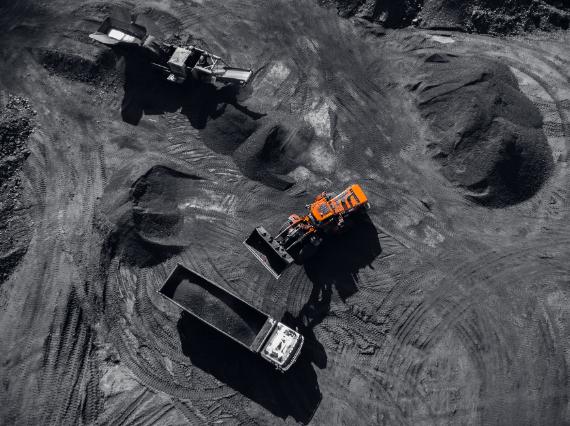
11:30 - 13:00 Room CC 9
The world’s consumption of several minerals is expected to increase considerably as the global economy expands and living standards rise, further increasing the pressure on the environment. At the same time, a sustainable exploitation of natural resources is required to meet numerous SDGs, such as ensuring availability and sustainable management of water and sanitation for all (SDG 6), promoting decent work and economic growth (SDG 8), investments in infrastructure (SDG 9), climate action SGD 13, and life on land (SDG 15). In this context, this session will discuss the opportunities and the challenges generated by the green low-carbon transition for the extractive industry. The debate explored how green technologies and business practises, including renewable energies, digitalisation (e.g. unmanned vehicles and satellites) and responsible business conduct, may help to green the extractive industries. Furthermore, the session discussed the tools available to governments and to Development Finance Institutions to address existing barriers to the shift towards greener technologies, including financing and skills gaps. The session also considered opportunities for the integration of resource-rich economies into green value chains.
Moderator
- Ligia Noronha, Director, Economy Division, UN Environment
Scene-setter
- Perrine Toledano, Head of Extractive Industries, Columbia Center on Sustainable Investment (CCSI) at Columbia University
- Hans Jörn Weddige, Group Coordinator Energy, Climate and Environment Policies, Thyssenkrupp AG
Panellists
- Malwina Nowakowska, Deputy Head of Unit, Resource Efficiency and Raw Materials, European Commission (DG GROW)
- Kakha Kuchava, Member of Parliament, Georgia, Chair of the Environmental Protection and Natural Resources Committee
- Håvard Halland, Senior Economist, Natural Resources for Development Unit, OECD Development Centre
Questions for discussion
- What are the opportunities and the challenges for the extractive sector connected to the green low-carbon transition?
- How can resource-rich countries benefit from the increasing demand for minerals and metals, while ensuring that environmental and climate impacts are minimized?
- What are the barriers to the development and adoption of greener new technologies and business practices in the extractive sector?
- Beyond environmental impacts, how can extractive industries contribute to the broader sustainability agenda?
Parallel Session B - International trade and the circular economy
Day 2 - November 27
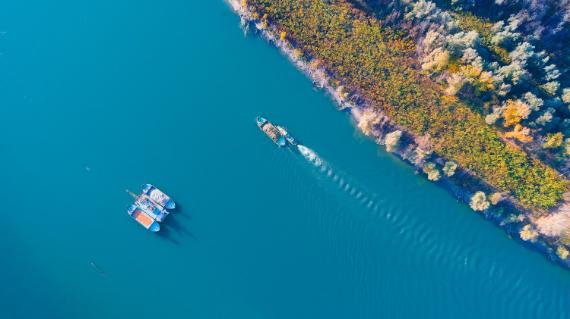
11:30 - 13:00 Auditorium
The transition towards a more circular economy has broad linkages with international trade. Thanks to global value chains, products cross national borders several times before reaching their final customers and, once they reach their end-of-life, are often re-exported. Efforts to decouple economic growth and material use need to consider domestic consumption as well as materials embedded in imported goods. This session looked at the role that trade can have in closing the material loop and promoting a circular economy. The debate investigated the tension between the long-standing principle of avoiding trade in waste due to potential negative environmental impacts and growing awareness of the importance of waste and secondary materials as tradable commodity. The need of harmonising domestic circular economy policies, such as standards and labelling, in order to ensure international waste trade flows was also discussed.
Moderator
- Julia Nielson, Deputy Director, Trade and Agriculture Directorate, OECD
Scene-setter
- Shardul Agrawala, Head of Environment and Economy Integration Division, Environment Directorate, OECD
Panellists
- Scott Vaughan, Distinguished Fellow, International Institute for Sustainable Development
- Jenny Svärd, Director Environmental Policies, Confederation of Swedish Enterprise
- Keli Yu, Secretary General of China National Resources Recycling Association
- Adina Renee Adler, Assistant Vice President, Institute of Scrap Recycling Industries (ISRI)
Questions for discussion
- What are the challenges and opportunities of free trade in secondary materials? Do existing trade policies promote material efficiency?
- What are the consequences of the emerging trade restrictions on waste and scrap, and what could be the potential solutions?
- How can national standards be harmonized in order to avoid fragmentation of international markets? Is there room for regional or global harmonization?
- What is the role of innovation, including block-chain technology? Can early standardization hamper innovation?
Parallel Session C - Regions and extractive industries
Day 2 - November 27
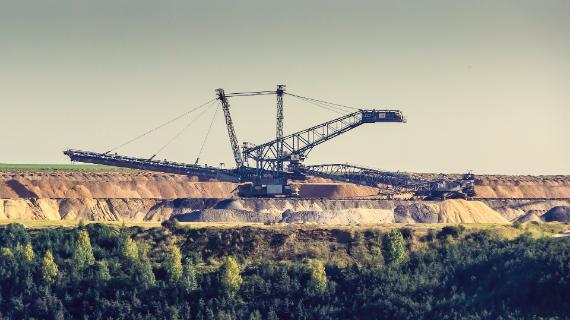
11:30 - 13:00 Room D
Resource-rich regions are engines of growth for many countries. However, they do not necessarily reap the full benefits of the extraction of non-renewable resources and often face issues such as indigenous communities and landowners, remoteness and limited economic diversity, as well as lack of community infrastructure and services. At the same time, the costs associated with the specialisation in mining (e.g. environmental externalities and socio-economic inequalities) also tend to be amplified at the local and regional scale. The transition to low-carbon economies generates new challenges and opportunities, including managing structural adjustment costs for regions dependent on the extraction of hydrocarbons, as well as introducing renewable energy technologies in mining. This session investigated how place-based development approaches can promote sustainable and inclusive exploitation of finite natural resources. It also addressed how mining operations and investment can support local entrepreneurs and SMEs. The role of multi-level governance and sub-national fiscal arrangements, stakeholders’ engagement and partnerships with indigenous communities was discussed, as well as the ‘just transition’ for mine workers.
Moderator
- Alain Dupeyras, Head of Division for Regional Development and Tourism, OECD
Scene-setters
- Gavin Bridge, Professor, Durham University, United Kingdom
Panellists
- Mika Riipi, County Governor at Regional Council of Lapland, Finland
- Oliver Sartor, Senior Research Fellow, IDDRI
- LeRoy Hollenbeck, Director Social Responsibility & Community Development, Freeport-McMoRan
- Sébastien Storme, Senior Advisor, Just Transition Centre at the International Trade Union Confederation
- Jane Korinek, Trade Policy Analyst, Trade and Agriculture Directorate, OECD
Questions for discussion
- How can subnational governments promote more inclusive development in mining regions in the context of a green energy transition? What mechanisms, competencies and skills are needed and work best to implement places based policies?
- How can mining regions be supported to invest in sustainable long-term growth? What regional planning, multi-level governance and revenue sharing arrangements help achieve this outcome?
- What are the opportunities for regional development that can be harnessed in terms of developing local mining value chains related to the circular economy and green technologies?
- How can governments and mining companies work together to deliver local job opportunities and improve quality of life in mining regions, particularly in the context of increased automation and digitalisation?
OECD-UNEP Lunch time Side Event
Day 2 - November 27
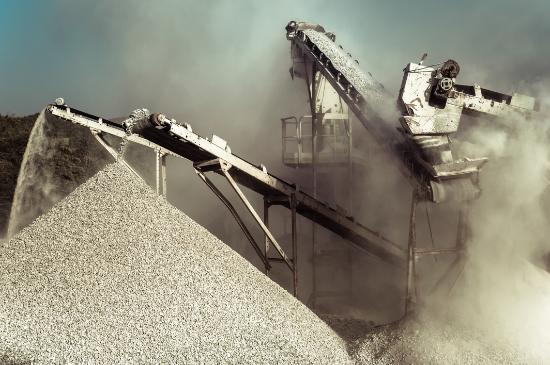
13:00 - 14:30 Auditorium
Analysis from the International Resource Panel and the OECD shows that, unless of fundamental changes in the use of natural resources, global materials use will more than double by 2060. Governments and the private sector will need to act together to adopt more sustainable consumption and production patterns to provide shared opportunities, and support the transition towards inclusive green economies. This joint UNEP – OECD side event discussed how the circular economy can contribute to promote sustainable consumption and production, the barriers that currently hinder the widespread adoption of circular business models, the role of the private sector in addressing the adverse impacts of extractive sector on local communities through responsible business conduct, and explore how the UNEP approach to and experience in circular economy can promote innovative approaches for the sustainable management of metal and mineral resources.
Moderator
- Shardul Agrawala, Head of Environment and Economy Integration Division, Environment Directorate, OECD
Panellists
- Janez Potočnik, Co-chair, UNEP International Resource Panel; former European Commissioner for the Environment
- Ligia Noronha, Director, Economy Division, UNEP
- Benjamin Katz, Policy Analyst, Centre for Responsible Business Conduct, Directorate for Financial and Enterprise Affairs, OECD
Special High-Level Panel Discussion: The new geopolitics of natural resources
Day 2 - November 27
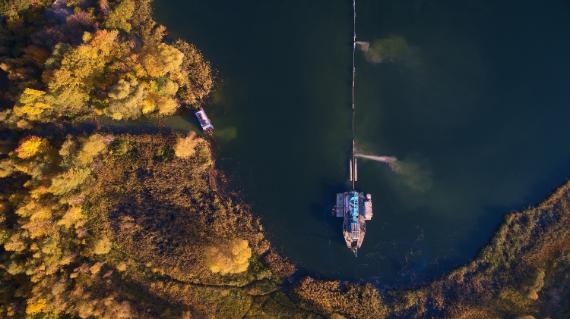
14:30 - 16:00 Room CC 9
The energy mix that underpins our societies is evolving. The share of fossil fuels, which have powered economic growth and contributed to lifting millions of people out of poverty, will need to be reduced if the world is to achieve net-zero emissions by mid-century. As countries aim to strengthen their energy security by harnessing domestic renewable energy sources, a reduction in the geostrategic importance of oil and gas is a potential consequence. Furthermore, the low-carbon transition could face new resource bottlenecks due to the supply concentration of metals such as lithium or cobalt in a few regions, as illustrated by the 2010 rare earth crisis. Digitalisation, a key enabler of the low-carbon transition for its role in smart grids, may also create cyber security and privacy concerns. This special High-Level Panel discussed how the green transition may change the geopolitics of natural resources and the implications for the international rules-based framework.
Moderator
- Roger Dungan, Deputy Permanent Representative to the OECD, New Zealand
Scene-setter
- Janez Potočnik, Co-chair, UNEP International Resource Panel; former European Commissioner for the Environment
Panellists
- Roman Vakulchuk, Senior Research Fellow, Norwegian Institute of Foreign Affairs
- Lisa Fisher, Senior Policy Advisor, E3G
- Molly Walton, Energy Analyst, World Energy Outlook, International Energy Agency (IEA)
- Andy Wyckoff, Director, Science, Technology and Innovation Directorate, OECD
Policy questions (to be developed)
- Would the rise of renewables lead to a reduction in the geostrategic importance of fossil fuel rich nations? Would it lead to new tensions linked to mineral resource reserves that support renewable energy technologies?
- What kind of governance could ensure a fair and sustainable exploitation of key raw materials to balance the interest of resource-rich countries and importing countries?
- Does the low-carbon transition require to revisit and update the concepts of energy security?
Closing Session
Day 2 - November 27
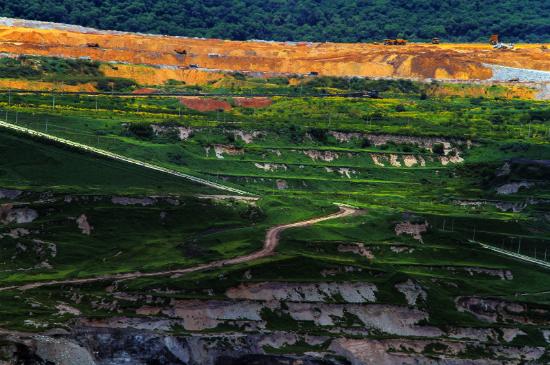
16:15 - 17:15 Room CC 9
Moderator:
- Kumi Kitamori, Head of Green Growth and Global Relations Division, Environment Directorate, OECD
Reporting back from Parallel Sessions
- Session A - Ligia Noronha, Director, Economy Division, UNEP
- Session B - Julia Nielson, Deputy Director, Trade and Agriculture Directorate, OECD
- Session C - Alain Dupeyras, Head of Division for Regional Development and Tourism, OECD
Secretariat response
- Federico Bonaglia, Deputy Director, Development Centre, OECD
- Lamia Kamal-Chaoui, Director, Centre for Entrepreneurship, SMEs, Regions and Cities, OECD
- Julia Nielson, Deputy Director, Trade and Agriculture Directorate, OECD
- Grace Perez-Navarro, Deputy Director, Centre for Tax Policy and Administration, OECD
- Rodolfo Lacy, Director, Environment Directorate, OECD
Closing remarks
- Masamichi Kono, Deputy Secretary-Genera, OECD

